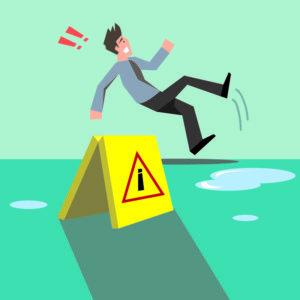When you’re injured in an auto accident, some of your injuries may be subtle or appear days to weeks after the collision. Although injuries such as broken bones or concussion may be apparent immediately, an injury like whiplash may be less visible or take more time to recognize. If you are suffering from lingering pain you cannot explain or may have a claim after the accident, you need the assistance of an experienced and knowledgeable personal injury lawyer, especially if you may be suffering from whiplash.
One of the most common injuries following an auto accident is “whiplash.” In personal injury cases, it can be very difficult to prove you are suffering from whiplash injuries and there are many misassumptions surrounding what whiplash is, how it happens, and how it affects day-to-day life following your accident. One of the most common classifications of injury in rear-end collisions and other types of accidents is known as “whiplash.” It is important to remember that whiplash may be a serious injury and should not be taken lightly. If you are experiencing pain, get the help and compensation you deserve.
Whiplash – What is it?
According to Mayo Clinic, “whiplash is a neck injury due to forceful, rapid back-and-forth movement of the neck, like the cracking of a whip… Most people with whiplash get better within a few weeks by following a treatment plan that includes pain medication and exercise. However, some people have chronic neck pain and other long-lasting complications.” Whiplash was first termed in the 1920’s and has become exceedingly more common. Symptoms may include, but are not limited to, headache, dizziness, pain, visual disturbance and blurriness, and hearing disruption. Whiplash is not typically life-threatening, but may cause long periods of pain and disability and lasting complications, depending on the severity of the accident or type of collision.
How is Whiplash Proven?
Overall, it can be very difficult to “prove” whether or not a victim of the accident has whiplash. Whiplash usually involves soft-tissue injury, which x-rays and scans typically do not show. Primary care physicians may diagnose whiplash through careful examination and testing pain levels through different movements, but it can be difficult to know if the pain or injury is truly from the recent accident or if any underlying conditions existed before. This usually means a whiplash diagnosis is somewhat subjective, based on the doctor, tests, etc. It is reassuring to know that new advances in medical technology may give a more definitive diagnosis for whiplash.
Building Your Case and Compensation
Following your auto accident, it is important to seek medical attention as soon as possible, especially if you suspect you may have a whiplash injury. Your primary care physician and their medical team can record your symptoms and begin a medical log that will provide better evidence for your claim than not being treated altogether. Your medical team can also provide exercises or tips for things to do/not do in efforts to speed up your treatment and recovery time. If you follow your treatment plan, this shows the jury that you are making an effort in your recovery process and may be suffering from some serious pain following your collision. The guidance of your personal injury lawyer will also provide the direction needed and assist in the building of your case.
The calculation of your compensation depends on the treatment received and the value of your claim. You may begin by totalling all of your medical bills for treatment received after the accident–doctor’s visits, medication or pharmacy bills, chiropractor or physical therapy bills. Including all of these bills in your valuation and fighting for compensation is key to get the most out of your claim.
Turn to a Lawyer You Can Trust
The guidance and assistance of an experienced personal injury lawyer can make or break your case. They can help you file a claim for whiplash injury damages, accurately describe the pain, accident, or injuries sustained, and collect money from those who hurt you. Our lawyers know and understand the challenges of “proving” a whiplash case and have expertise in how to overcome the obstacles that may arise with fighting for your injury. Our team works with some of the best healthcare experts to argue your injuries and fight for the debilitations whiplash may cause for each and every individual involved in an auto accident.





























